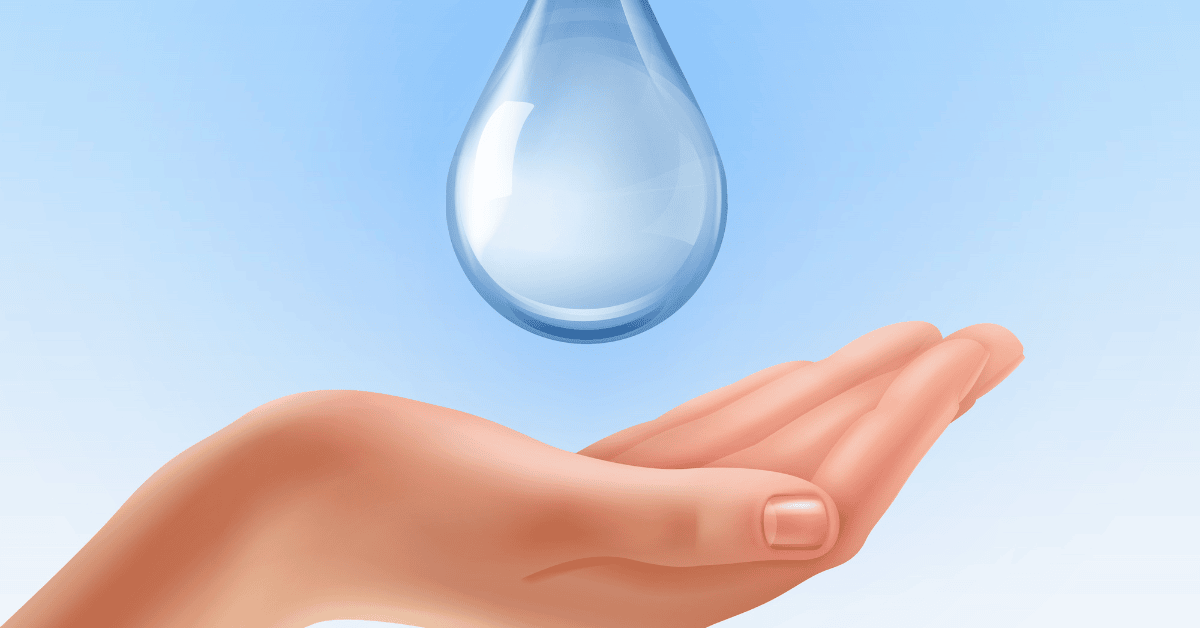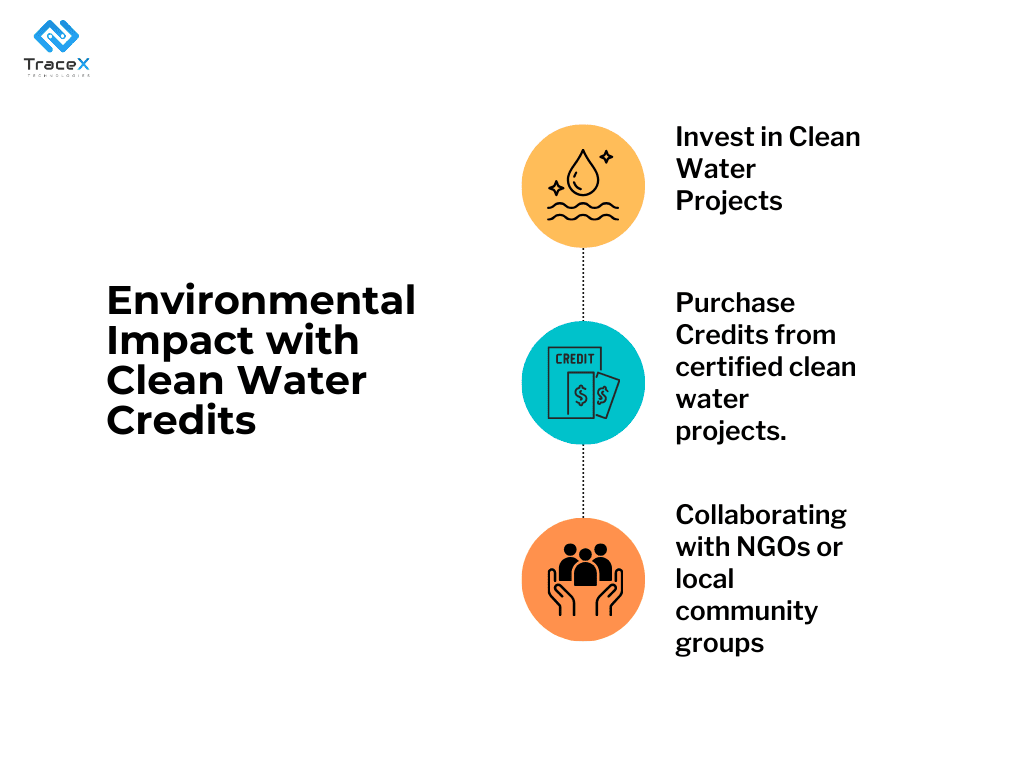Contact: +91 99725 24322 |
Menu
Menu
Quick summary: Discover how clean water carbon credits offer a sustainable path to water security. Learn how these innovative solutions help reduce emissions, support local communities, and drive investment in clean water projects.

Access to clean water is a critical issue around the world, impacting billions of people. At the same time, climate change is reshaping the environment, making water scarcity more severe. But what if the solution to these problems could be connected? Clean water carbon credits is a concept that merges carbon reduction with access to safe water. This approach aims to incentivize clean water projects while also reducing carbon emissions, offering a sustainable path forward.
Water management contributes to approximately 10% of global greenhouse gas emissions, indicating that improvements in this sector can significantly impact overall emissions reduction efforts.
The integration of carbon credits into water management strategies can create a win-win scenario where funding for clean water initiatives also contributes to climate mitigation efforts. This dual benefit can attract more stakeholders to participate in both markets.
Key Takeaways
In simple terms, clean water carbon credits represent the reduction of greenhouse gases achieved through water purification and access projects. Here’s how it works:
These credits provide financial incentives for companies and investors to support clean water initiatives, creating a win-win scenario for the environment and communities in need.
Water scarcity affects more than 2.2 billion people globally, with many lacking access to clean drinking water.
This has serious implications, including:
Clean water carbon credits can play a pivotal role in addressing these challenges. By promoting projects that provide safe drinking water, they reduce both health risks and the need for fuel consumption. This approach not only cuts down on carbon emissions but also helps communities to thrive.
The process of generating clean water carbon credits involves several key steps:
1. Project Implementation: A clean water project, like installing water filtration systems or distributing water purifiers, is set up in a community.
2. Monitoring & Verification: The project’s impact is monitored to ensure it meets the criteria for reducing greenhouse gases. This often includes tracking the reduction in fuel use for boiling water.
3. Certification: Verified reductions are certified as carbon credits by recognized bodies like the Gold Standard or Verified Carbon Standard (VCS).
4. Selling the Credits: The credits can be sold on the voluntary carbon market, providing revenue to sustain the project and fund additional initiatives.
This model ensures that projects not only provide immediate benefits to local communities but also contribute to long-term environmental goals.
The potential for generating carbon credits from water-related projects is estimated at over 1.6 billion tons of CO2 equivalent (tCO2e) per year. This includes initiatives in wastewater treatment, rural drinking water systems, and irrigation efficiency.
Carbon credits for water filters are generated from projects that provide clean water access through the distribution of water filtration systems. These projects reduce the need for traditional water boiling methods that often rely on burning biomass like wood, which contributes to carbon emissions. By providing efficient water filters, these projects decrease the carbon footprint of communities while ensuring access to safe drinking water. The reduced emissions are quantified and converted into carbon credits, which can then be purchased by companies to offset their carbon emissions and meet sustainability goals.
Water carbon credits offer a financial boost for projects that adopt sustainable practices, turning water conservation efforts into a revenue stream. This approach provides economic incentives for initiatives that save water or improve its quality, making sustainable water management more appealing and viable for various stakeholders.
Clean water carbon credits bring several advantages, especially when it comes to tackling water scarcity and climate change together:
Several successful projects have demonstrated the potential of clean water carbon credits to create positive change:
Safe Water Network in Ghana: By providing clean water through community-based filtration systems, this initiative has reduced reliance on wood-burning stoves for boiling water, translating into significant carbon reductions.
Water Purification Systems in India: Projects in rural India have introduced water purification devices, reducing the need for traditional methods of water purification. This has cut down carbon emissions and brought clean water to millions.
Project WADI, launched by CEMAsys and CIC, aims to provide safe drinking water to rural communities in Madhya Pradesh, India, addressing critical water scarcity and contamination issues. The initiative tackles the high incidence of water-borne diseases, including diarrhea, which is a leading cause of death in the region. Project WADI aims to provide safe drinking water to rural communities in India. Using solar-powered disinfection devices, the project not only delivers clean water but also generates carbon credits through reduced emissions. Over 30,000 families have benefited from this initiative. The project significantly reduces waterborne diseases in the region.
Clean Water for Schools in Kenya: A program installing water purification systems in schools has not only improved children’s health but also generated carbon credits that fund the initiative’s expansion.
These examples highlight how clean water projects can simultaneously address environmental and social challenges.
While the potential is clear, there are some challenges to making clean water carbon credits a widespread solution:
Overcoming these challenges is crucial for scaling the impact of clean water carbon credits and making them a practical tool for sustainable development.

Digital MRV (Monitoring, Reporting, and Verification) solutions play a crucial role in clean water carbon projects by providing accurate data collection and transparency. These solutions monitor the impact of water-related activities—like providing clean drinking water—on carbon emissions, allowing projects to verify their contributions to carbon reduction. By tracking real-time data, they help ensure the accuracy of carbon credits generated from activities like reducing the need for boiling water, which cuts emissions.
TraceX Digital MRV Platform is tailored to streamline this process. It uses blockchain-backed technology for transparent data tracking, ensuring secure, tamper-proof records of water-related carbon reductions. The platform automates data collection, simplifies reporting, and integrates with existing systems to verify project outcomes. For clean water projects, this means seamless documentation of carbon savings and efficient proof of impact for carbon credit buyers, thus fostering trust and encouraging further investment in sustainable water solutions.
The intersection of clean water initiatives and carbon credit markets presents a unique opportunity for addressing two critical global challenges: water security and climate change. With increasing awareness and demand for sustainable solutions, these credits could become a key component of global carbon markets. Innovations in digital monitoring, such as IoT-enabled sensors and blockchain for transparency, are making it easier to verify the impact of clean water projects. More governments are recognizing the importance of water access as part of climate policy, potentially opening up new funding opportunities for clean water projects. With many companies setting ambitious carbon neutrality goals, there is a growing demand for high-quality carbon credits, including those from clean water projects. By focusing on projects that improve water access while reducing carbon emissions, the clean water carbon credits approach could drive meaningful change.
Clean water carbon credits represent a unique opportunity to tackle two pressing global challenges: water scarcity and climate change. By incentivizing projects that provide safe drinking water, they offer a sustainable way to reduce carbon emissions and uplift communities. For businesses, investors, and governments, supporting these projects means contributing to a more sustainable future while also achieving carbon reduction goals. As more stakeholders recognize the value of clean water carbon credits, they could pave the way for lasting environmental and social impact.
Clean water carbon credits are credits generated from projects that provide access to safe drinking water, reducing the need for energy-intensive water purification methods, and thus lowering carbon emissions.
These credits support projects that provide safe drinking water, improving health outcomes, reducing disease risks, and boosting economic opportunities for rural communities.
Businesses can invest in these credits to offset their carbon footprint while contributing to global water sustainability, aligning with ESG goals and building positive environmental impact.
